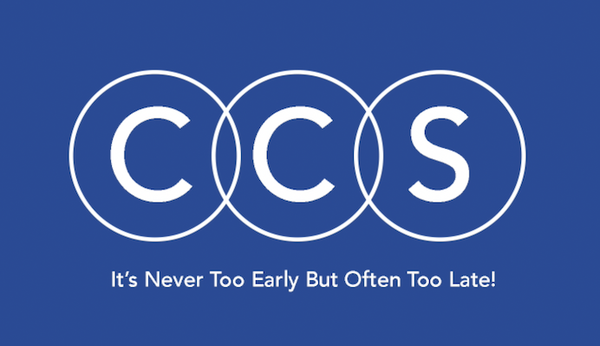
If you fail to act now:
- Your home may have to be sold to pay for your Long Term Care Costs.
- Your savings and investments could be wiped out.
- Any income would be assessed and used towards the cost of your Care.
- Your children and grandchildren could lose their entire inheritance.
How do I protect my home and assets from Care Costs?
Most of us work very hard over the years to buy our own homes and build up our savings for our retirement and would like to leave a ‘little something’ for our children and grandchildren after we are gone.
Unfortunately, the costs involved in moving into a care home can literally wipe out your entire savings and your home may have to be sold to pay for Care fees. This could mean that your loved ones could receive very little, or even nothing at all of what you originally intended them to have.
When someone enters Care they are automatically ‘means tested’ and ALL of your assets, including your home are taken into account. Only those who have very few assets will escape the costs of Care.
So what can be done?
Firstly, it is important to safeguard your home and the first step is to look at the way you currently own your home. The majority of people own their homes jointly, which means that on the first death, the survivor would then own 100% of the full property value, this is when your home becomes vulnerable to attack from Care.
Simply changing the way you own your home to what is known as ‘Tenants in Common’, combines with the appropriate Trust planning, will effectively ensure that your property is fully protected should either of you enter Care.
So what about my other assets such as bank accounts and savings?
Once again, changing the way your assets are invested and held can ensure that your cash or liquid assets are also protected from Care.
Our team of fully qualified Advisers are able to advise on all aspects of Care Planning and provide you with the correct strategy to ensure that ALL your assets are protected.
When would I have to pay for care?
If you own more than the Upper Limit, currently £23,250 (which includes your property, any cash or savings and stocks and shares), you will be expected to fund the full cost of your Care fees. You would not be able to receive any financial help from your Local Council until your savings (assets) have been reduced to the Upper Limit.
If you have less than the Upper Limit savings, or when your savings drop to this limit, the Local Council will then assess your ability to pay based on both your capital and income.
If you have assets below the Lower Limit, currently £14,250, then any contribution you may be required to make towards the cost of your Care will be based solely on your income and your assets disregarded.
You are most at risk of losing your home to Care Costs when you enter Care, after owning your home jointly with a spouse, unmarried partner or civil partner and they have passed away. The full capital value of your home will have passed to you and you will be assessed on the property’s full value along with any formerly jointly held assets, such as savings.
How can I prevent my home being sold?
The simplest way to avoid this happening is to firstly change the way in which your property is owned. Most people when buying a property with another person have the property set up as Joint Tenancy and whilst this may be the correct way to own a property in certain circumstances, for the vast majority of people this is not the best way to own a property for either Care Cost issues or Inheritance Tax liabilities.
Severing the tenancy on the property and changing the ownership to ‘Tenants in Common’, so you now each own 50% of the property (percentages of ownership can vary according to individual requirements) and then by setting up Mirror Wills, each bequeathing the Testator’s share of the property Trust or Family Trust can ensure that your home is not lost to Care.
On the first of you to die their share of the property is left to the Trust, whose Beneficiaries will be the spouse or partner, children, grandchildren or other named Beneficiaries. Whilst the surviving partner continues to reside in the property there are no issues, but once the survivor goes into Care this is when property and assets will be assessed for Care Costs.
Once again the Council would designate a value to the survivor’s interest in the property and once again the value would be dependent on the price that could be legally occupied by any of the Beneficiaries names in the Deceased person’s Trust (usually his or her children/grandchildren) and so, the value of the person’s share entering Care would be held as being nil.
So I can protect my property, but what about my other assets?
Assets such as Cash, Stocks and Shares, Bank and Building Society Accounts, PEPs and ISAs etc. will be determined as liquid assets and in addition to any income received, will be assessed for Care. Changing the way your assets are both held and invested will ensure that they are not assessed for Care Costs. Councils are advised that if an Investment Bond is written as one or more Family Life Insurance Policies that contain cashing-in rights by way of options for total or partial surrender, then the value of those rights has to be disregarded as a capital asset in the financial assessment for residential accommodation. In contrast, the surrender value of an Investment Bond without Family Life Assurance is taken into account.
Income from investment bonds, with or without Family Life Assurance, is taken into account in the financial assessment for residential accommodation as may be payments of capital by periodic installments.
Long Term Care Capital Thresholds 2017/18
You will be required to pay for all your own Care if your assets are greater than:
| England: | £23,250 |
| Wales: | £30,000 |
| Scotland: | £26,500 (From June 2017) |
| N.Ireland: | £23,250 (April 2017 – 2018) |
You will be required to pay for some of your own Care if your assets are between:
| England: | £14,250 – £23,250 |
| Wales: | £30,000 – £30,000 (The Upper and Lower Limits are the same) |
| Scotland: | £16,500 – £26,500 |
| N. Ireland: | £14,250 – £23,250 |
To set up a meeting with one of our advisers, click Apply Today!
getasecondopinion.co.uk/contact
“It’s never too early- but it’s often too late!!!”



19 thoughts on “How do I protect my Home and Assets from Care Costs?”